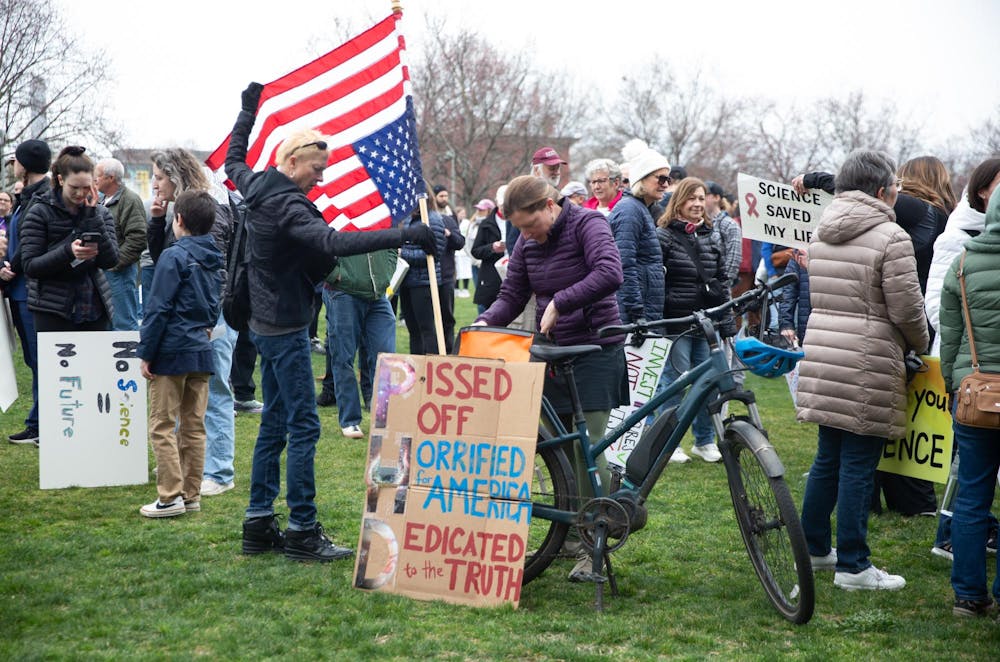On March 7, hundreds of community members gathered in Halifax Mall in Raleigh for the Stand Up For Science protest.
The event was part of a nationwide movement centered in Washington D.C., in which 32 cities rally against President Donald Trump’s recent federal funding cuts and scrapping of diversity, equity, inclusion and accessibility (DEIA) initiatives.
Stand Up For Science 2025 policy goals include ending censorship and political interference in science, securing and expanding scientific funding, and defending DEIA in science.
The event's co-leader Enya Dewars, who is a third year Duke PhD candidate researching cardiovascular disease, said that she first wanted to go to the D.C. protest, but decided to help organize the Raleigh rally when she saw that help was needed in North Carolina.
“There’s a lot of power in having a diverse community in so many aspects of just like how we think about science,” Dewars said. “But also how we then communicate science, and also who we’re inspiring to be scientists.”
The Halifax Mall crowd was made up of UNC, Duke and N.C. State students, as well as librarians, teachers and scientists. Some community members held signs that read “science saves lives," “science not silence," and “science matters."
Johnna Frierson, the Associate Dean for DEI at Duke University School of Medicine, spoke to the crowd at the event. She said that as a Black woman from Rock Hill, South Carolina, she was the first person in her family to earn a PhD in microbiology and immunology.
“If someone wants to call me a ‘DEI hire,' make sure the DEI stands for ‘definitely earned it,'" she said to the crowd.
Fierson said that some of the Trump administration's proposed policies and executive orders jeopardize the future of the scientific workforce. She said this year, the National Science Foundation is reducing internship training and the National Institutes of Health is not holding their summer internship program. These changes fail to provide an investment in the next generation of STEM students, Fierson said.




